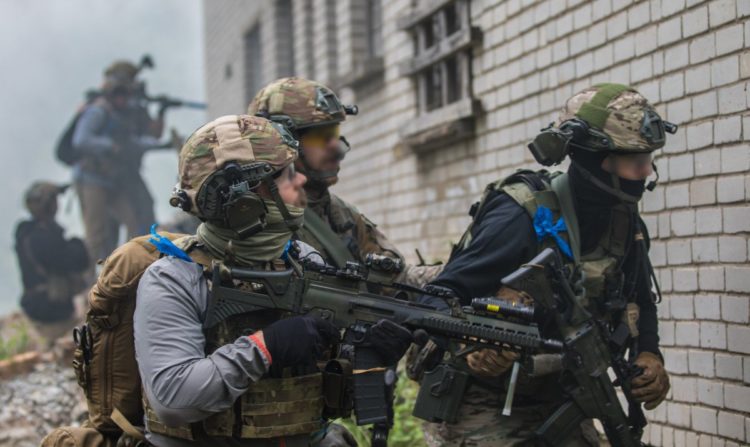Estonian commandos are the latest to join a French-led Special Operations task force that will deploy in Africa in the upcoming summer to fight Islamic extremists.
The deployment of the Estonian commandos was first reported by the Defense Post back in 2019. Then, an Estonian Defense Ministry spokesperson had stated that the country’s contribution to Task Force TAKUBA would come in the form of medical personnel, Explosive Ordnance Disposal (EOD) technicians, and Joint Terminal Attack Controllers (JTACs).
Now, the Estonian Ministry of Defense has verified that Special Operations troops will also be joining their counterparts in the fight against extremism in the Sahel region.
Kadi Silde, the Estonian Deputy Secretary-General of the Ministry of Defense, said that the “Estonian Special Operations Unit will be ready to move to Mali from the summer to assist and support the Malian security forces in close cooperation with French Special Operations Units.” She didn’t specify how many Estonian commandos will be joining the Task Force.
The Estonian Special Operations Force – that is the somewhat awkward but accurate title of the unit in English (it’s Kaitseväe erioperatsioonide väejuhatus in Estonian) was formed in 2005. It has deployed threes time in Afghanistan in support of American forces. Estonian SOF often train alongside commandos from the U.S., most usually from the 10th Special Forces Group, Germany, and the other Baltic countries.
But there are some potential issues with the French initiative, which the U.S. has decided to assist but not joint.
Joint operations are all well and good but they do come with an inherent issue: a weak unity of command. To be combat effective, a joint task force needs political will. The more nationalities there are under a single command, there more crowded the decision-making process becomes, and thus, the more restrained the force is.
In Europe, where the majority of countries aren’t accustomed to the rigors and costs of protracted combat operations, the political will necessary for effective combat operations isn’t there. Aside from France and the United Kingdom, both of which have been conducting unilateral combat operations for decades now, no other European nation has the experience or political will to sustain prolonged operations. A direct consequence of this is a decrease in effectiveness.
Then again, the French could shrewdly opt to utilize allied contingents in less risky operations, for example Special Reconnaissance (SR) or Foreign Internal Defense (FID) missions, and reserve their units for Direct Action (DA) operations.
The above reservations have nothing to do with the level of training and capabilities of European Special Operations units. Howsoever they might lack in combat experience in comparison to their American brethren, European SOF are lethal and capable.
Task Force TAKUBA, which means “sabre” in the Tuareg language, will be a multinational joint Special Operations task force. Although the composition hasn’t been finalized yet, it will most probably contain Special Operations units from the following European nations: Ireland, Estonia, France, Finland, Latvia, Denmark, Belgium, Sweden, Norway, the Netherlands, and the United Kingdom.
Already have an account? Sign In
Two ways to continue to read this article.
Subscribe
$1.99
every 4 weeks
- Unlimited access to all articles
- Support independent journalism
- Ad-free reading experience
Subscribe Now
Recurring Monthly. Cancel Anytime.











COMMENTS